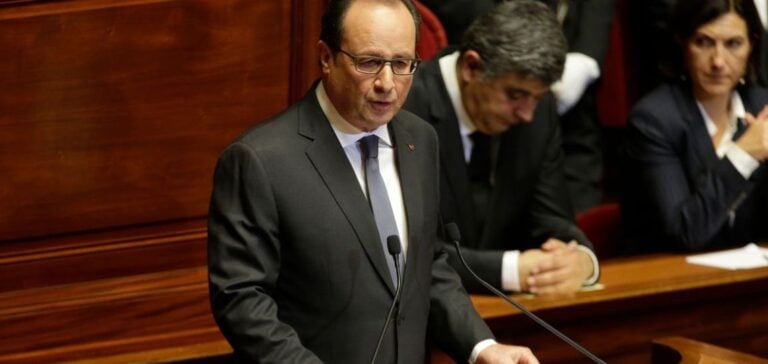Former French president François Hollande believes it is “necessary to suspend” LNG deliveries from Russia to Europe. In a speech to the French Senate, the former French president stressed the importance of this measure in the context of the war in Ukraine and ongoing European sanctions. At present, LNG transported by ship escapes the sanctions imposed on Russia, but Hollande insists on the need to close this loophole. Russia uses LNG revenues to finance its war effort, and according to Hollande, interrupting these deliveries would increase economic pressure on Moscow. Since the start of the war, European LNG imports have increased to compensate for the reduction in gas supplies via Russian onshore pipelines. The main delivery points are Belgium, France, the Netherlands and Spain.
Evolving European sanctions
The European Union has already imposed thirteen packages of sanctions against Russia, mainly targeting oil. The EU is now considering targeting Russian LNG as part of a new sanctions package. The aim is to prohibit the transfer of LNG via the EU to third countries, a measure designed to reduce Russia’s revenues and prevent circumvention of existing sanctions. Hollande stresses that, although this measure could lead to higher gas prices, it is necessary to maintain the EU’s political coherence. He admits that LNG imports from other countries might be necessary, which might seem contradictory to Europe’s climate objectives, but insists on the importance of a clear and consistent political message.
TotalEnergies’ position
TotalEnergies, which has invested heavily in Siberia, is directly involved in these discussions. The Senate Committee of Inquiry on TotalEnergies and the climate, chaired by Roger Karoutchi with Yannick Jadot as rapporteur, is examining the resources mobilized by the State to ensure that TotalEnergies meets its climate obligations, and the orientations of French foreign policy. The commission is due to deliver its report by mid-June. LNG import volumes from Russia have increased considerably since the start of the conflict in Ukraine, and TotalEnergies plays a key role in these imports. The commission’s debates aim to strike a balance between France’s energy, economic and climate imperatives.
Economic and climatic impact
The suspension of Russian LNG deliveries would have a significant impact on gas prices in Europe. Hollande acknowledges that this measure could lead to higher prices, but insists on the importance of reducing Europe’s dependence on Russian gas. Furthermore, importing LNG from other countries could temporarily increase Europe’s carbon footprint, but he believes this adjustment is necessary to send a strong signal to Moscow. Environmental NGOs, such as Urgewald, support this initiative, pointing out that Russian LNG is a “considerable asset” for Russia and an important source of funding for its war effort. Interrupting these deliveries would align the EU’s actions with its climate and political objectives.
A strategy for the future
The Senate Committee on TotalEnergies and Climate is also exploring long-term strategies for diversifying Europe’s energy sources. The emphasis is on developing renewable energies and reducing dependence on fossil fuels, particularly those from countries in conflict. Investment in renewable infrastructure and energy storage technologies are key to ensuring Europe’s energy security. The transition to greener, more sustainable energy is not only a response to climate challenges, but also a strategy for strengthening Europe’s energy and political independence.
François Hollande’s call to suspend Russian LNG deliveries to Europe reflects a desire to strengthen sanctions against Russia while aligning itself with the EU’s climate objectives. Although this measure may have short-term economic repercussions, it is seen as necessary to maintain policy coherence and strengthen Europe’s energy resilience. The Senate committee continues to examine ways of ensuring that TotalEnergies and other players meet their climate obligations, while exploring sustainable solutions for Europe’s energy future.






















